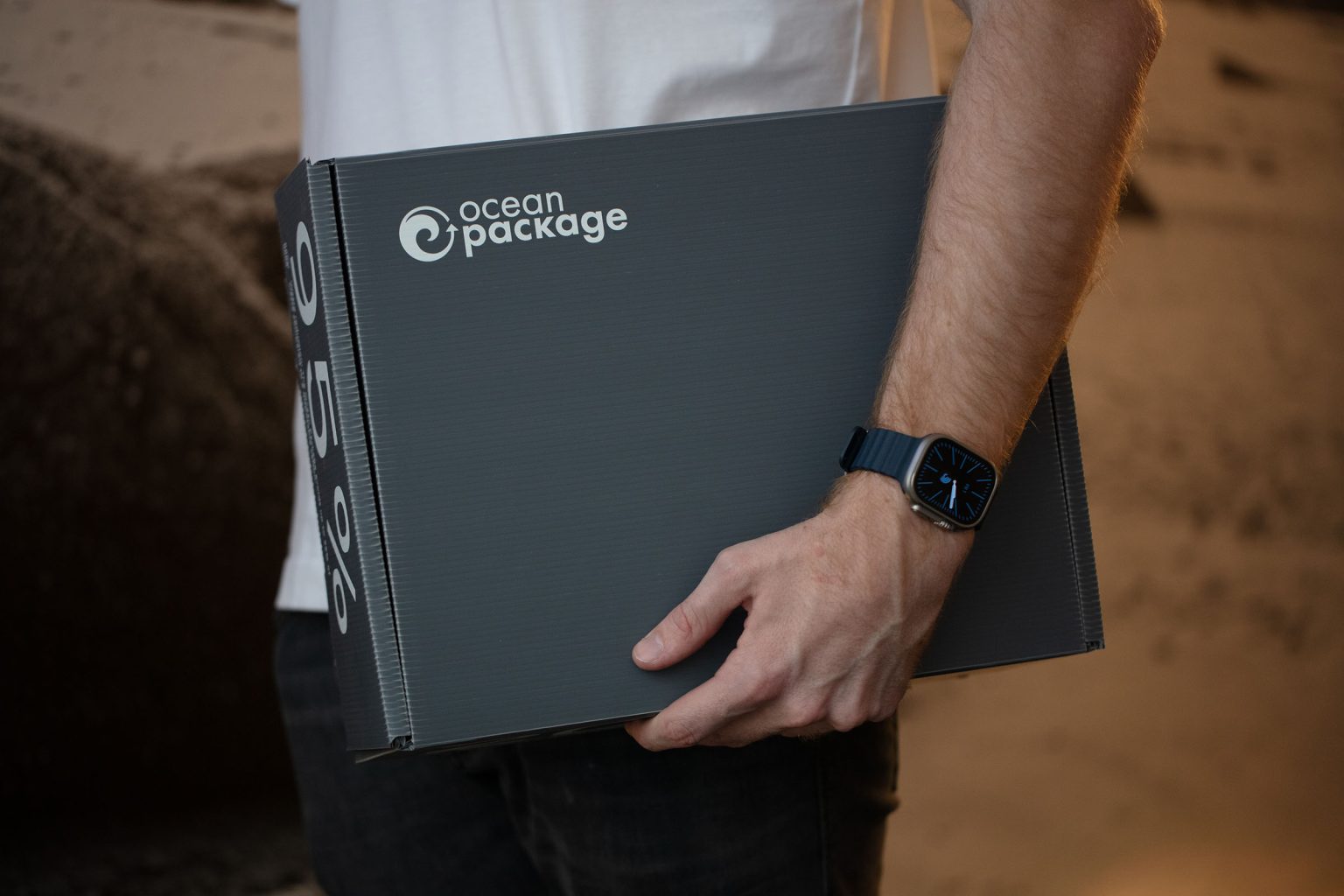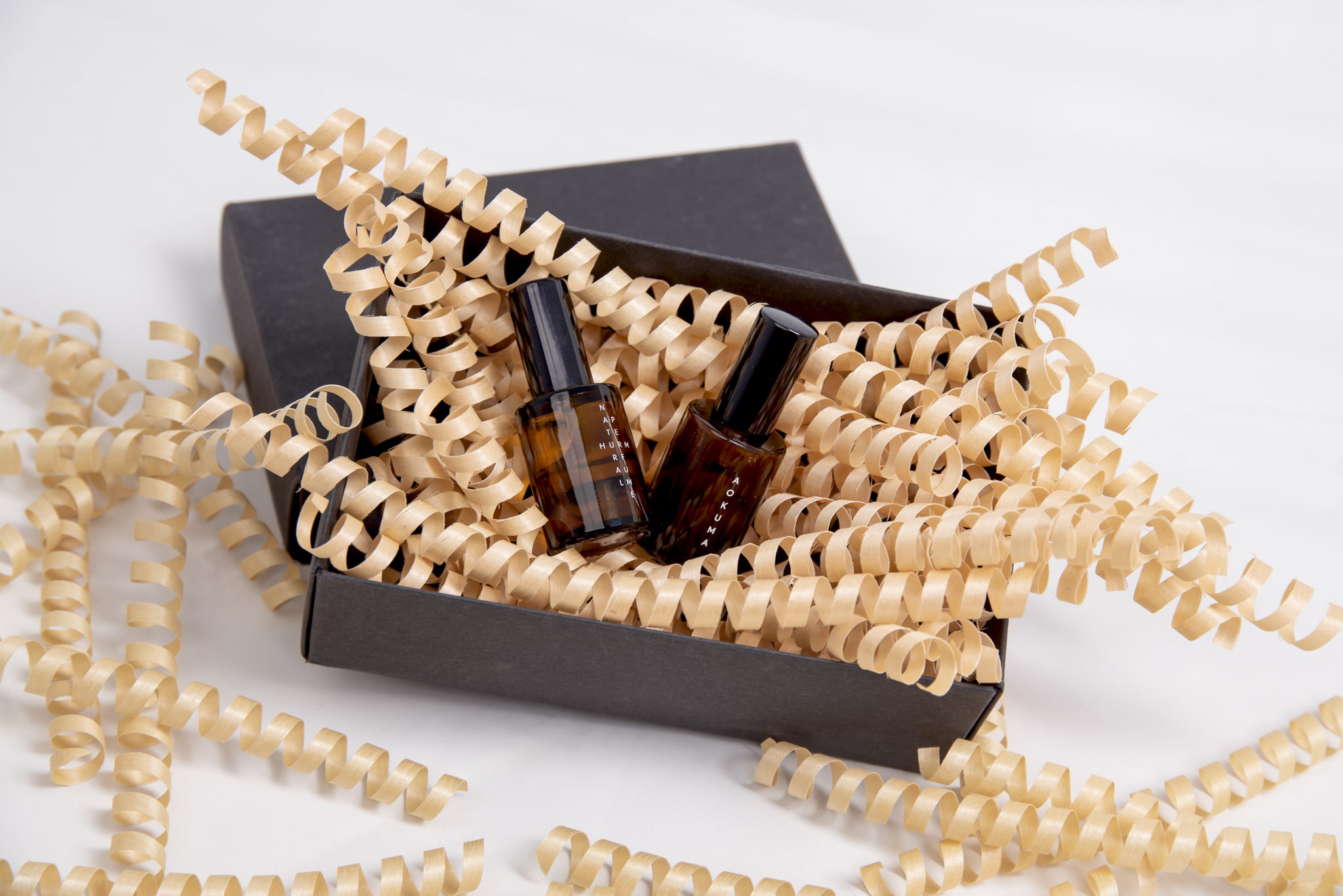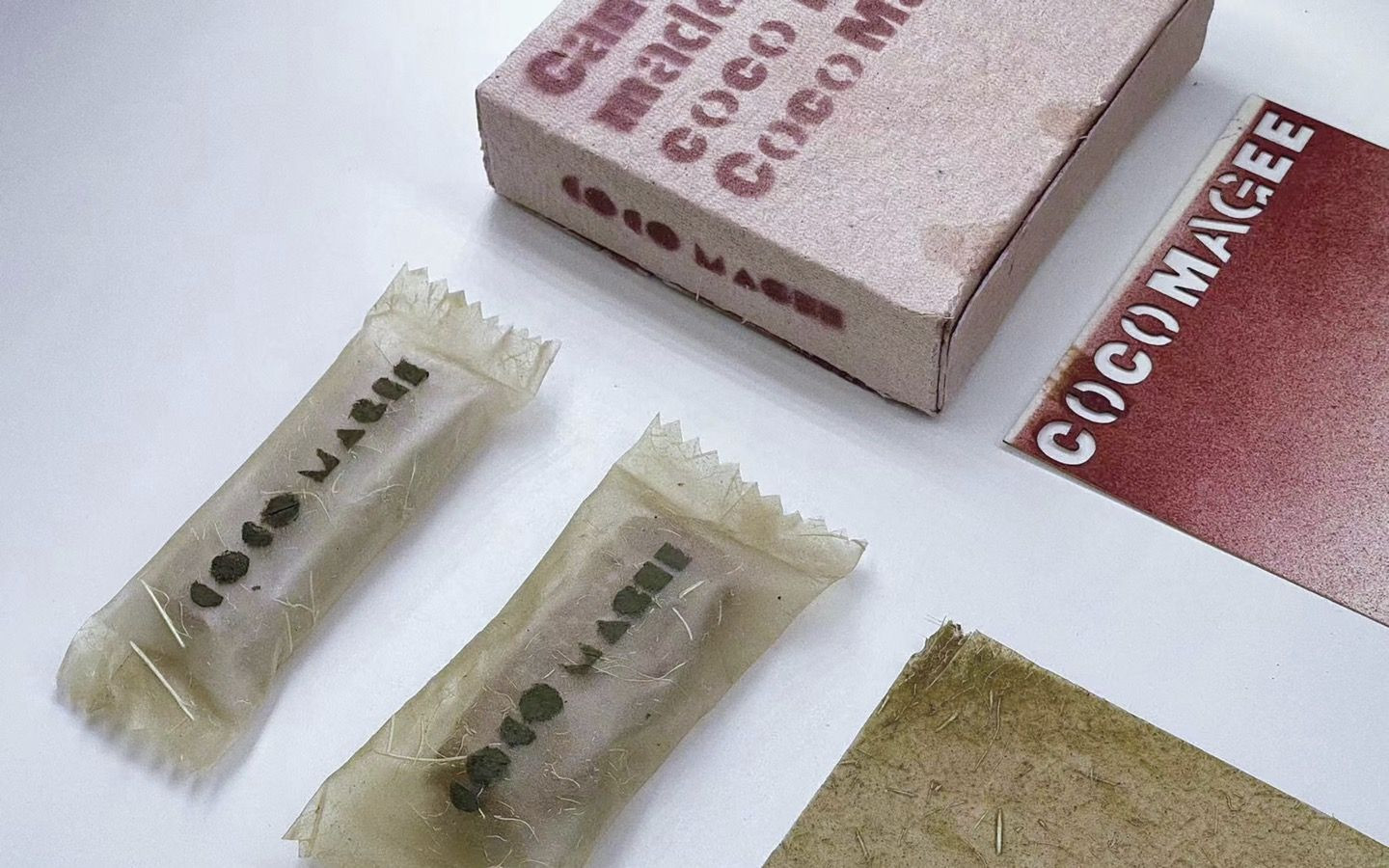
Experimental packaging: future-proof approaches for enclosing goods
The research and experimentation of innovative material solutions and technologies to rethink the packaging of the goods on retail shelves are certainly not a new activity, but a change of perception on the part of consumers, and pressure from policy to regulate the use of certain materials, plastic in particular, are accelerating the transition sector transition.
While at the regulatory level an attempt is made to limit the inappropriate use of materials, as in the case of the European directive on single use plastic products, the industry packaging designers and manufacturers is greatly interested in identifying raw materials that respond to both the new regulations and the very specific technical requirements.
 © Green Product Award, Best Concepts 2023: COCO MAGEE
© Green Product Award, Best Concepts 2023: COCO MAGEE
For some time now, industrial designers have an interest in materials to think about alternative solutions that allow to investigate new characteristics and performative qualities with a design-driven approach, defined as material tinkering.
A recent result of this practice is the COCO MAGEE concept presented by a group of students from the Product Design department of the Industrial Design College of the Guangzhou Academy of Fine Arts in China. With their experimentation on coconut shell, a highly resistant biomaterial, by using various transformation processes and investigating equally different application solutions, the young designers won the Green Product Award 2023 in the category Best Concept.
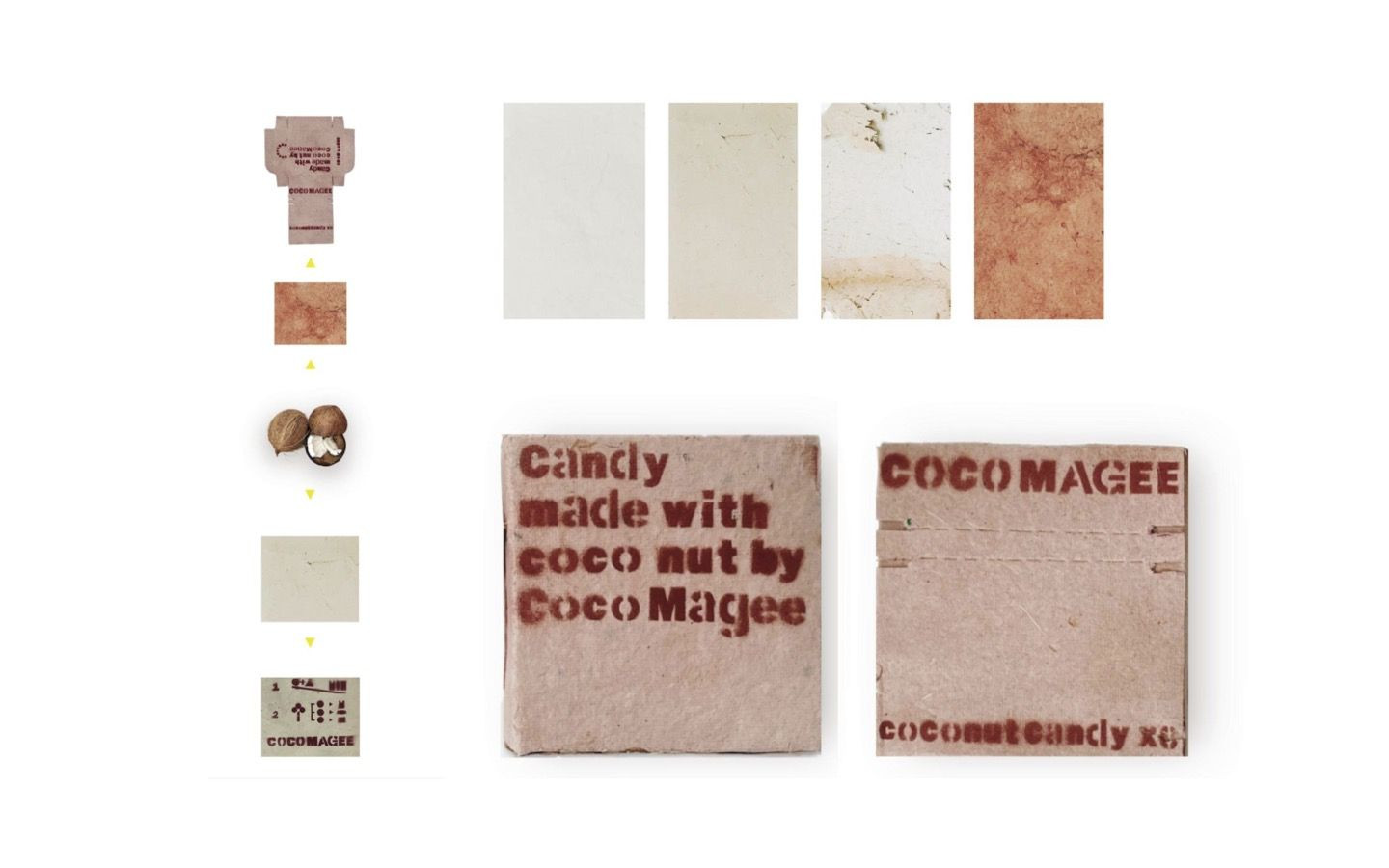 © Green Product Award, Best Concepts 2023: COCO MAGEE
© Green Product Award, Best Concepts 2023: COCO MAGEE
Starting from a well-defined problem, namely the large volumes of agri-food waste deriving from an increased cultivation and selling of coconut-based products, the designers experimented with various wastes to regenerate materials with different physical and aesthetic properties, including two-dimensional materials such as papers and translucent films based on coconut fibres.
Although this kind of material explorations is an expression of do-it-yourself experimentation in a university environment, they can lead to commercially interesting solutions, as demonstrated by the case of Notpla: a start-up born from the collaboration of two students who met while attending the joint Master Cours in Innovation Design Engineering of the Imperial College London and the Royal College of Art, and following the media success of their university project.
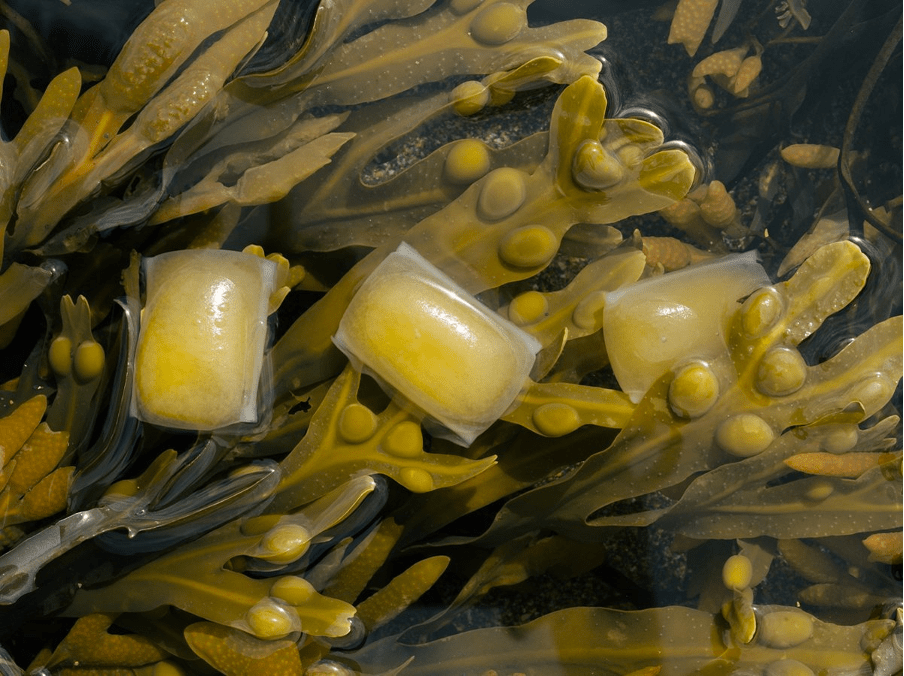 © Notpla
© Notpla
The result of their experimentation is an edible bubble encapsulating water, a single-serving pack made from seaweed. The wrapping is made up of a gelatinous layer: several membranes that allow to contain liquids of various kinds. Going viral in no time, the innovative packaging was further refined with the help of chemical engineers from Imperial College which allowed the inventors to develop their first commercial product, Ooho.
Partnerships with UK companies to replace disposable plastic cups and bottles followed, as well as the first launch of take-away food containers, all based on seaweed and plants. To date, after having closed some significant investing rounds, the start-up has more than forty employees and offers a series of bio-based packaging solutions for the food industry, for both solid and liquid content, all based on completely natural materials and therefore naturally biodegradable and home-compostable.
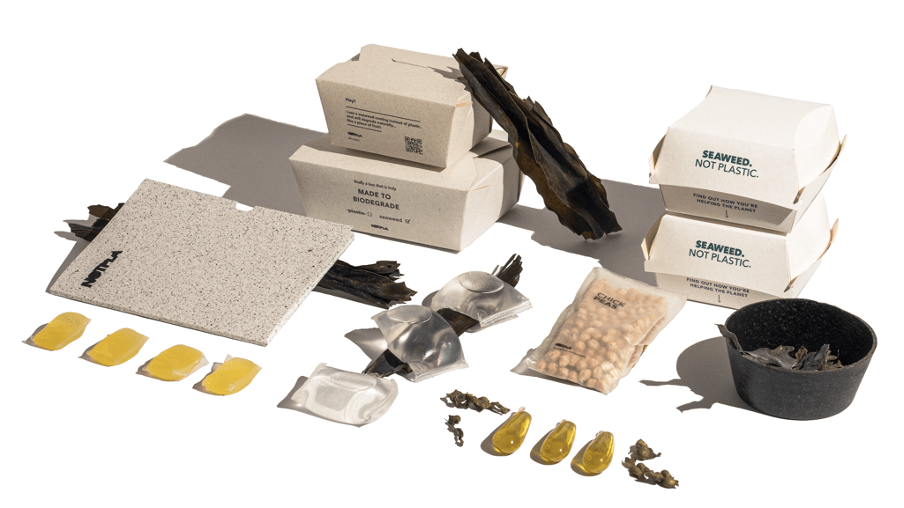 © Notpla
© Notpla
While these lucky outputs are results of a spontaneous collaboration, and spurred not by a need to create a new commercial product but to respond to a “class assignment”, nowadays even the big industries acknowledge the contribution to innovation coming from collaboration across institutions and roles.
Joining the forces for research and development activities of universities of excellence, cutting-edge research centers on technological development and large industry manufactures shows leading, in the long term, to solutions of great impact. An example of this type of partnership is the Usable Packaging project which brings together 25 partners in the European bio-based and food supply chain, including Barilla and Orogel.
The objective of the initiative co-financed with European funds is the replacement of fossil-based packaging materials with high-performance environmentally friendly alternatives. The focus of the research is on maintaining the technical properties necessary for packaging of food and other perishable products, while offering biodegradable characteristics that ensure an end of life fitting into a circular economy perspective.
A milestone of the project is the successful creation of biodegradable bags for frozen food products derived from food industry residues and produced by consortium partner BIO-MI. More details on this project outcome can be found in the press release.
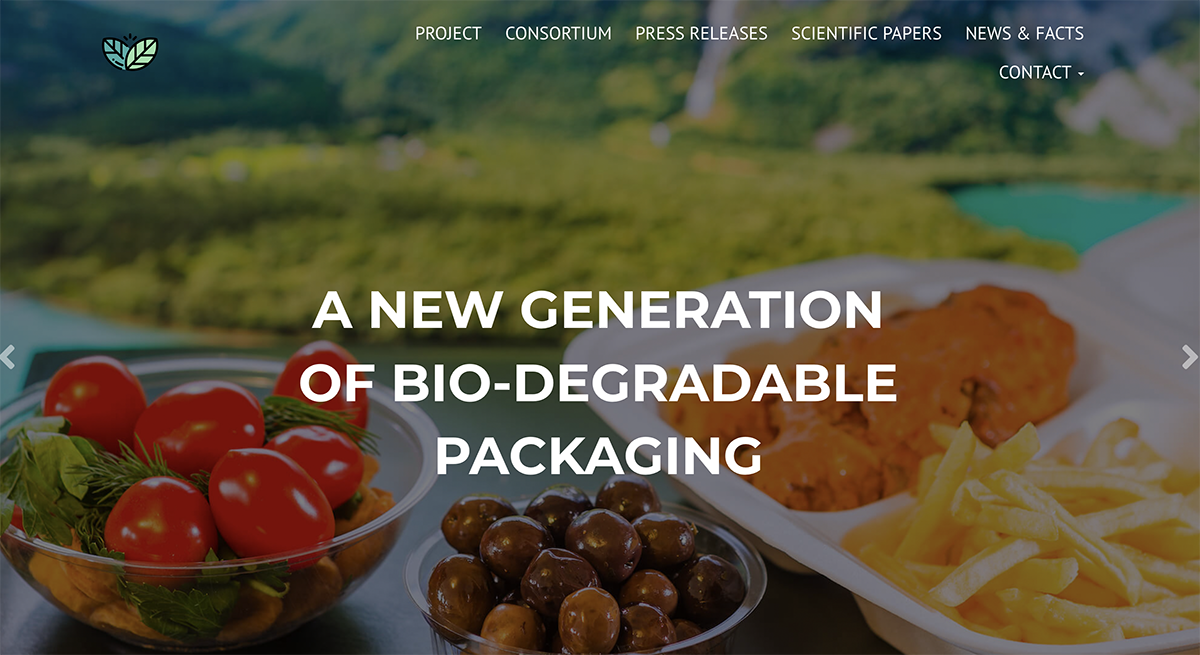 ©Usabel Packaging Project
©Usabel Packaging Project
The objective of the initiative co-financed with European funds is the replacement of fossil-based packaging materials with high-performance environmentally friendly alternatives. The focus of the research collaboration is on maintaining the technical properties necessary for packaging of food and other perishable products, while offering biodegradable characteristics that ensure an end of life fitting into a circular economy perspective.
A milestone of the project is the successful creation of biodegradable bags for frozen food products derived from food industry residues and produced by consortium partner BIO-MI. More details on this project outcome can be found in the press release.
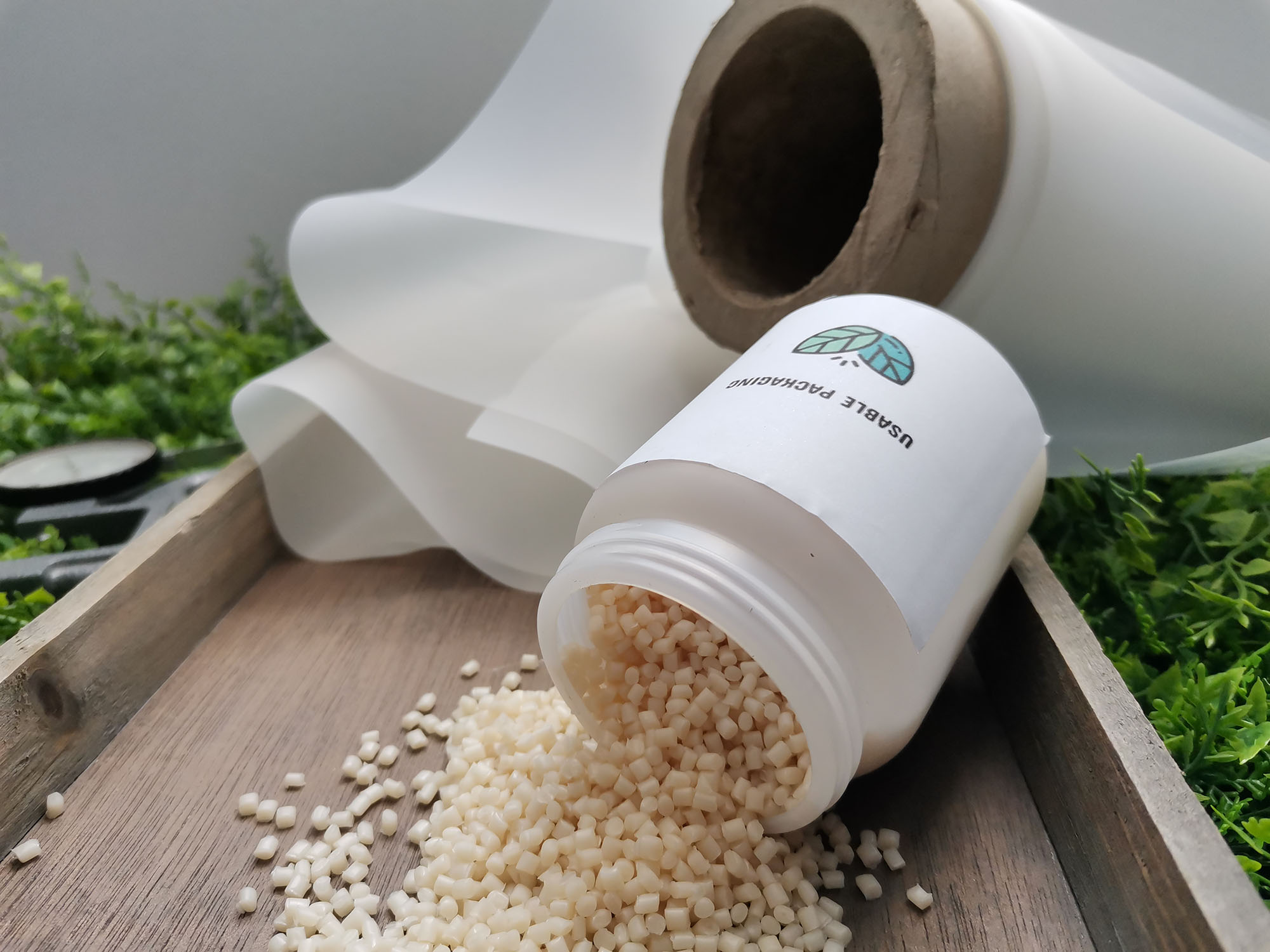 Image courtesy of Bio-mi
Image courtesy of Bio-mi
Not only private finance, but above all the European Commission fosters and invests in research and development projects in various ways, including through the Circular Bio-based Europe Joint Undertaking program, to support material innovation and the growth of European companies while creating circular and sustainable value chains.
Are you a developer of innovative packaging materials?
Be a speaker at our next Innovation Day in September, Materially’s networking event where you can present your innovation in the packaging world to a targeted audience and generate new business opportunities. More information at this link or contact vsarbach@materially.eu

